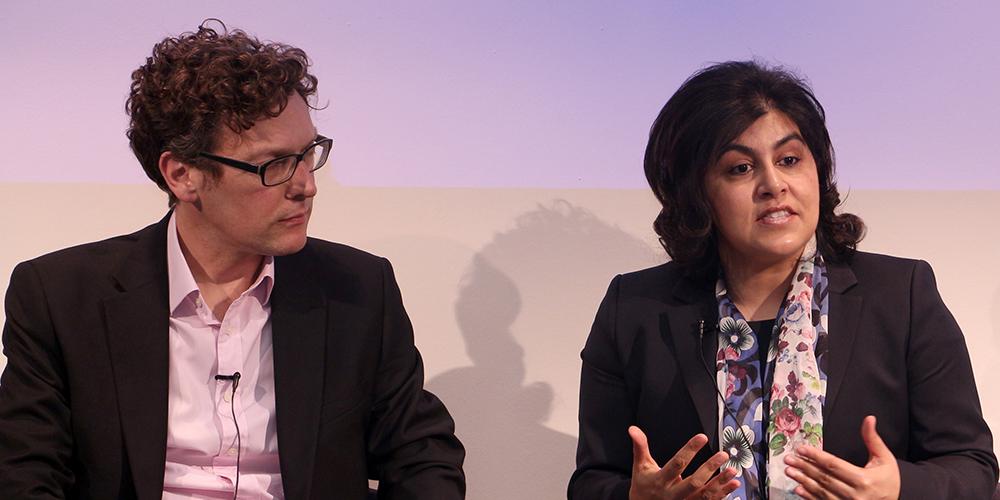Baroness Sayeeda Warsi is calling for change in the way policy is made: it should be more transparent, consistent and evidence-based. Sophie Wilson hopes government pays attention.
On Monday, Baroness Warsi spoke at the IfG about her new book, The Enemy Within: a tale of Muslim Britain, in which she describes her experiences of government and the policy ideas she now wants implemented.

“We shouldn’t have to ask why evidence is important to policy”
Coming into politics after a career in law, Warsi found a distinct lack of evidence combined with a reluctance to bring in experts, polling and research from outside the civil service.
In one case, Warsi describes the Government's process for coming up with a definition of Islamist extremism as those who follow the teachings of Sayyid Qutb – an Islamic theorist. To test the definition, Warsi went out and talked to a group of under 25s, asking them if they knew who he was. The top three responses were: is he a rapper? Is he a cricketer? Sayyid who? The Government had a definition based on a man that people did not know existed. For Warsi, this illustrates the significance of evidence-based policy and the need to bring in external expertise.
“My diaries are probably more accurate than government records”
The opacity of government decision making is also a problem for Warsi, who calls for greater transparency across government. The use of back channels, text messages and social meetings to influence policy is damaging for decision making in the immediate term, limiting sources of ideas, and for future generations.
Warsi is concerned that the detail and accuracy of records being kept today will make it more difficult for us as a nation to see how decisions and journeys, like the tale of Muslim Britain over the last 10 years, took place. Better recording of calls will help to reduce the influence of informal channels and improve the use of evidence.
“Britain has been trying to create a nation at ease with itself for centuries”
Warsi clearly believes in the importance of telling these stories and showing how British values have developed over time. She thinks the Government has dropped the ball on issues of integration and resilience, with policies being regarded as “slightly soppy add-ons” and thus easy to cut from departmental budgets – something she witnessed first-hand as Minister for Faith and Communities at the Department for Communities and Local Government during the Coalition Government (2012-14).
For Warsi, integration is just as significant as national security; not getting on with each other can create wide and varied challenges. In response, she suggests a Department of National Identity and Integration that would cover the whole of the UK, look at settled communities, new arrivals and national integration. This would facilitate a debate about what Britain wants to be in 2020, discussing British “ideals” that match the direction we want to go in as a nation. Warsi is also calling for an independent review into the controversial Prevent programme to understand what works and improve what doesn’t.
“Every policy should be about bringing people into the system, rather than leaving them out”
Fundamentally, Warsi wants to see a consistent message on British values that applies equally to all policy decisions whether at home or abroad. She points to the Government’s policy of disengagement from supporters of Wahhabism (a branch of Islam) at home being at odds with its international engagement with Saudi Arabia as one example of the mixed messages being sent.
We’ll have to wait and see how many of Warsi’s asks are taken up by the next government; creating new departments or starting a national conversation on Britishness are unlikely to be top priorities. But embedding evidence-based policy making, bringing in outside expertise, and increasing the transparency of government decisions wouldn’t be a bad place to start for any new government looking to build public trust amongst communities across the UK.
- Topic
- Policy making